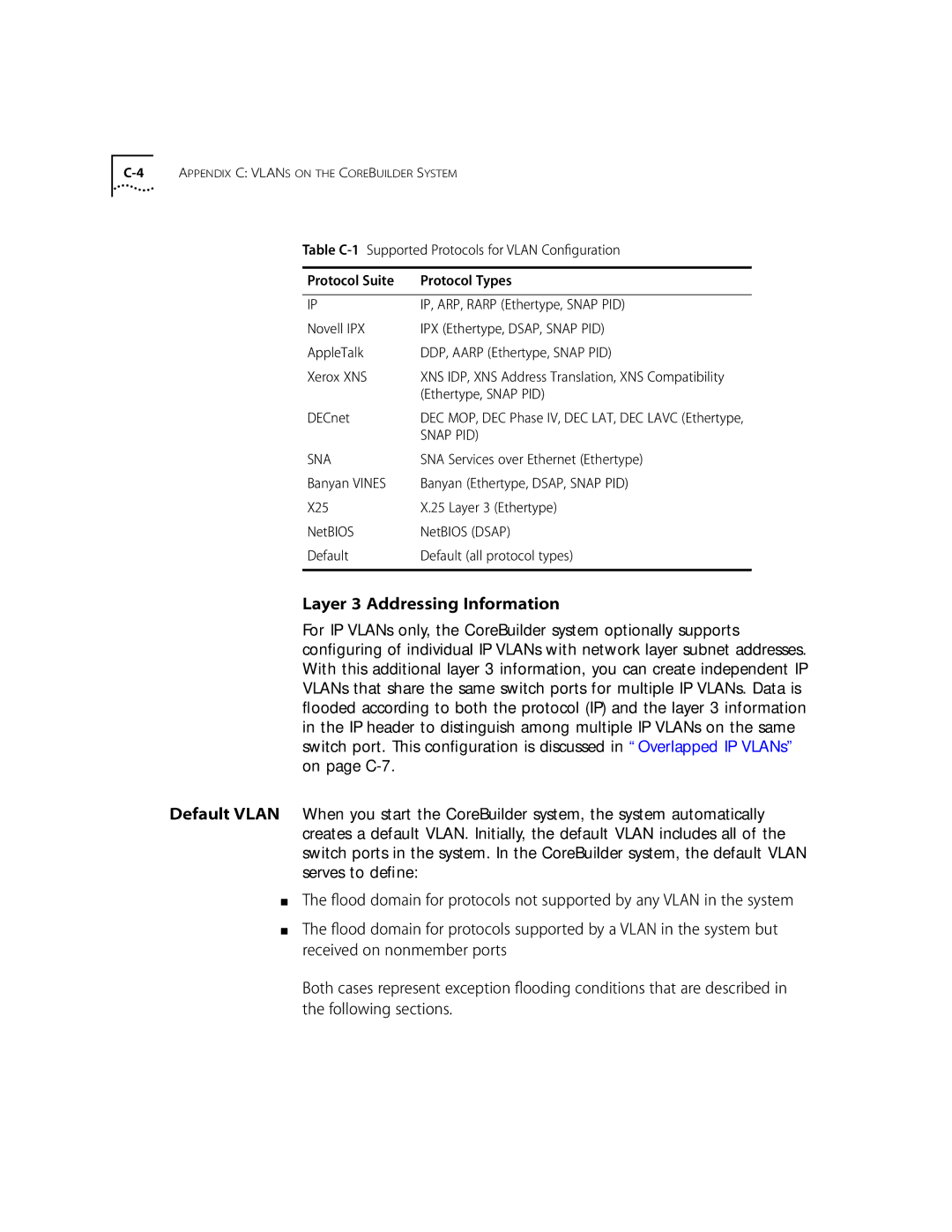
C-4 APPENDIX C: VLANS ON THE COREBUILDER SYSTEM
Table
Protocol Suite | Protocol Types |
|
|
IP | IP, ARP, RARP (Ethertype, SNAP PID) |
Novell IPX | IPX (Ethertype, DSAP, SNAP PID) |
AppleTalk | DDP, AARP (Ethertype, SNAP PID) |
Xerox XNS | XNS IDP, XNS Address Translation, XNS Compatibility |
| (Ethertype, SNAP PID) |
DECnet | DEC MOP, DEC Phase IV, DEC LAT, DEC LAVC (Ethertype, |
| SNAP PID) |
SNA | SNA Services over Ethernet (Ethertype) |
Banyan VINES | Banyan (Ethertype, DSAP, SNAP PID) |
X25 | X.25 Layer 3 (Ethertype) |
NetBIOS | NetBIOS (DSAP) |
Default | Default (all protocol types) |
|
|
Layer 3 Addressing Information
For IP VLANs only, the CoreBuilder system optionally supports configuring of individual IP VLANs with network layer subnet addresses. With this additional layer 3 information, you can create independent IP VLANs that share the same switch ports for multiple IP VLANs. Data is flooded according to both the protocol (IP) and the layer 3 information in the IP header to distinguish among multiple IP VLANs on the same switch port. This configuration is discussed in “Overlapped IP VLANs” on page
Default VLAN When you start the CoreBuilder system, the system automatically creates a default VLAN. Initially, the default VLAN includes all of the switch ports in the system. In the CoreBuilder system, the default VLAN serves to define:
■The flood domain for protocols not supported by any VLAN in the system
■The flood domain for protocols supported by a VLAN in the system but received on nonmember ports
Both cases represent exception flooding conditions that are described in the following sections.
